Vincent Lambert: Frenchman at centre of end-of-life debate dies
- Published
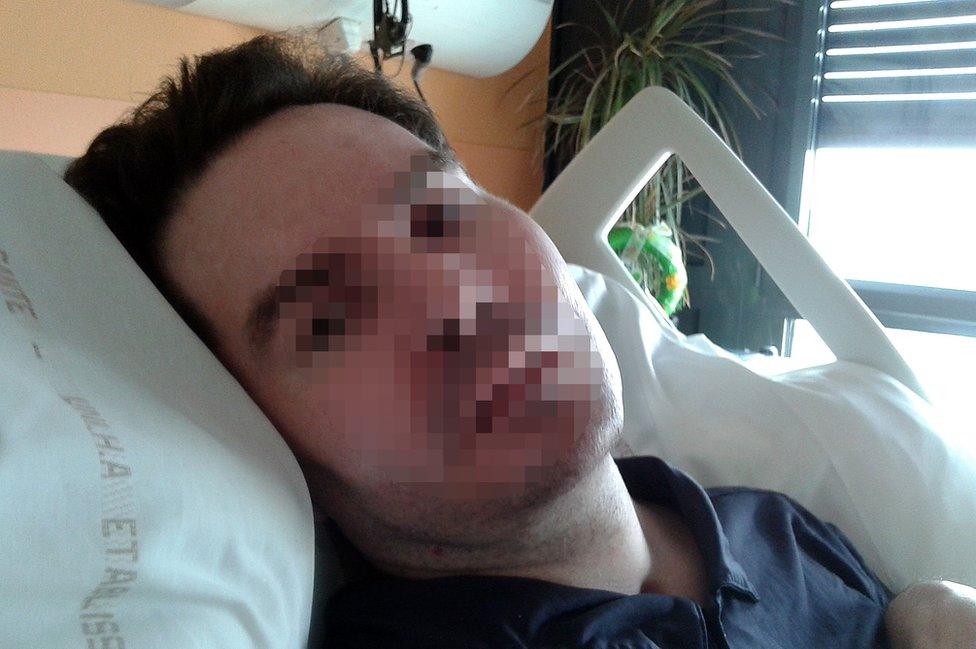
Lambert's family provided this photo from his hospital bed in 2015 requesting his face be blurred
A quadriplegic man, who became a symbol of the right-to-die debate in France, has died after doctors removed his feeding tubes, his family says.
Vincent Lambert, 42, had been in a persistent vegetative state since a motorcycle accident 11 years ago.
Doctors began taking him off life support last week after a final ruling by France's highest appeals court.
Euthanasia is illegal in France, but doctors are allowed to put terminally ill patients into deep sedation.
Mr Lambert's case divided both the country and his own family, sparking demonstrations on the streets of Paris.
His nephew said he had died at 08:24 (06:24 GMT) on Thursday, nine days after his feeding tubes were removed.
On 2 July, the Court of Cassation in France overturned an earlier appeal court ruling to allow doctors to stop feeding Mr Lambert, who was a former psychiatric nurse.
A vigil is held for Vincent Lambert in Paris
A medical team at the Sébastopol Hospital in the northern city of Reims then began removing his feeding tubes, while ensuring a "profound and continuous sedation".
Mr Lambert's parents, who had battled to keep their son alive, were told there could be no further appeal and said on Monday they were "resigned" to accepting his death.
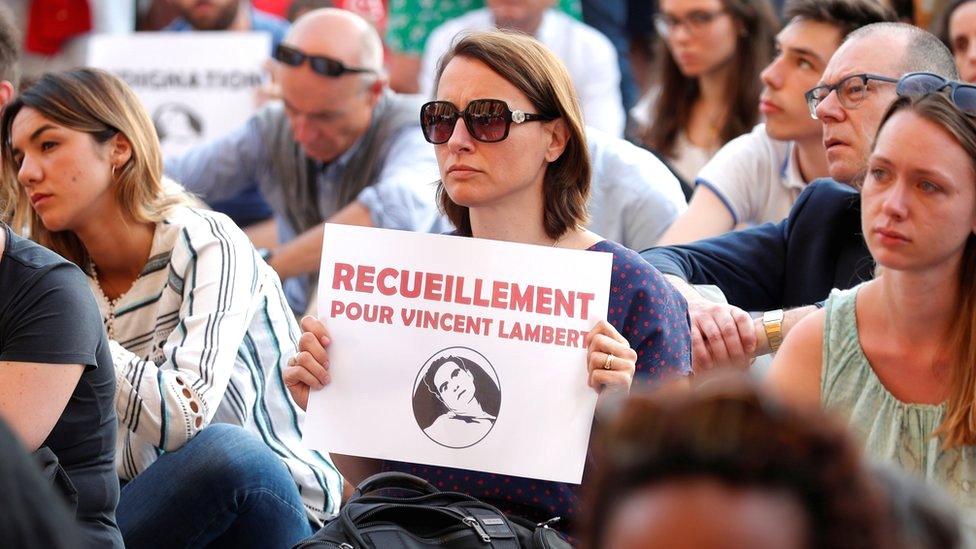
A ceremony was held in support of Mr Lambert in Paris on Wednesday
His father, Pierre Lambert, 90, had earlier described the court decision as "murder in disguise" and "euthanasia".
But Mr Lambert's wife and others argued that the humane course was to let him die.
What happened to Vincent Lambert?
Back in 2008, Mr Lambert was involved in a near-fatal road accident that left him in a quadriplegic state of paralysis and with minimal consciousness.
Doctors said the brain damage he had suffered was irreversible.
He was kept alive with food and water delivered through a gastric tube, but was able to breathe without artificial aid and he occasionally opened his eyes.
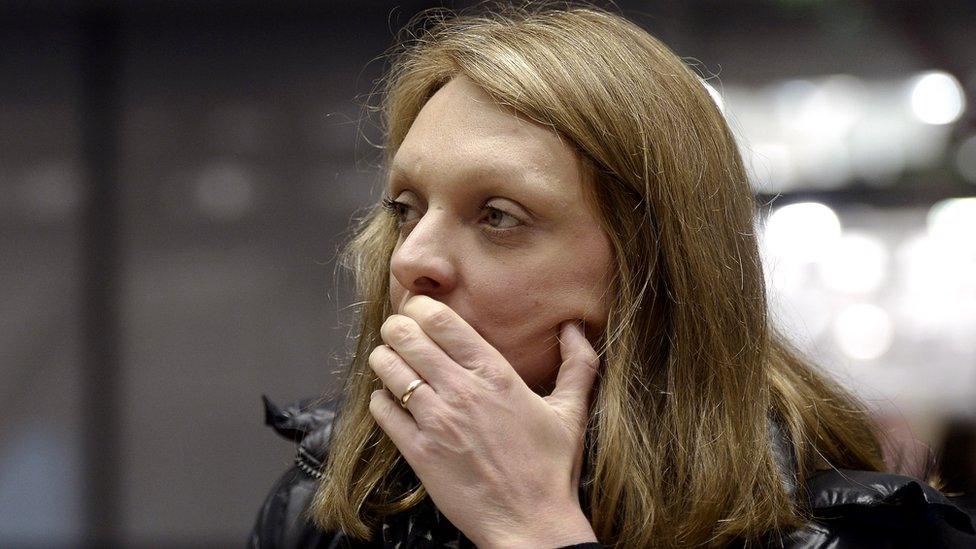
Rachel Lambert, seen here at a hearing at the European Court of Human Rights in 2015
After spending years trying to improve his condition, Mr Lambert's medical team recommended in 2013 that care should stop, in consultation with his wife Rachel.
As his legal guardian under French law, Rachel maintained that her husband had made clear before the accident that he would not want to be kept alive artificially, AFP news agency reported.
Doctors then made several attempts to remove his life support but were forced to reinstate it in court rulings following appeals by Mr Lambert's parents.
Why did the case go to court?
Because the rest of Mr Lambert's family were not consulted about the decision by his medical team, it was challenged and a lengthy legal battle over his care began.
While his wife, six of his siblings and a nephew favoured ending his artificial life-support, Mr Lambert's devoutly Roman Catholic parents, Pierre and Viviane, and two other siblings remained adamant it should continue.
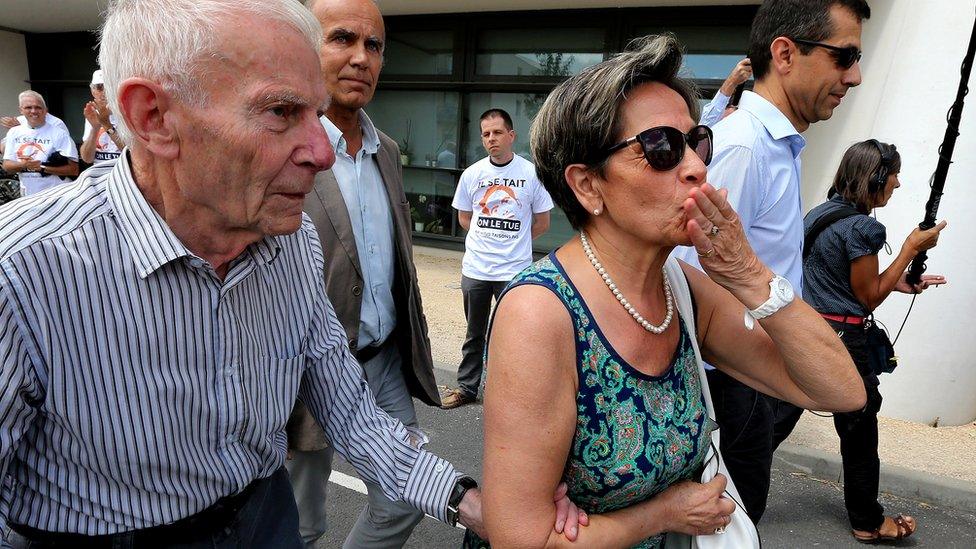
Mr Lambert's parents, Pierre (left) and Viviane, campaigned for years to keep their son alive
At the height of the row, in 2015, Mr Lambert's parents released a video via a conservative Catholic website on YouTube which they said showed him reacting to family members.
Doctors involved in his care complained that the video was misleading about his condition, and manipulative to the wider public.
His case was then the subject of multiple judicial rulings, going as far as the European Court of Human Rights (ECHR).
The ECHR upheld the decision of a French court to allow Mr Lambert to be taken off life support. However, doctors did not at that time carry out the plan - amid security concerns raised by Mr Lambert's father, who feared there was a plan to kidnap him.
Further appeals were then dismissed and a new medical team began withdrawing his care.
- Published28 June 2019
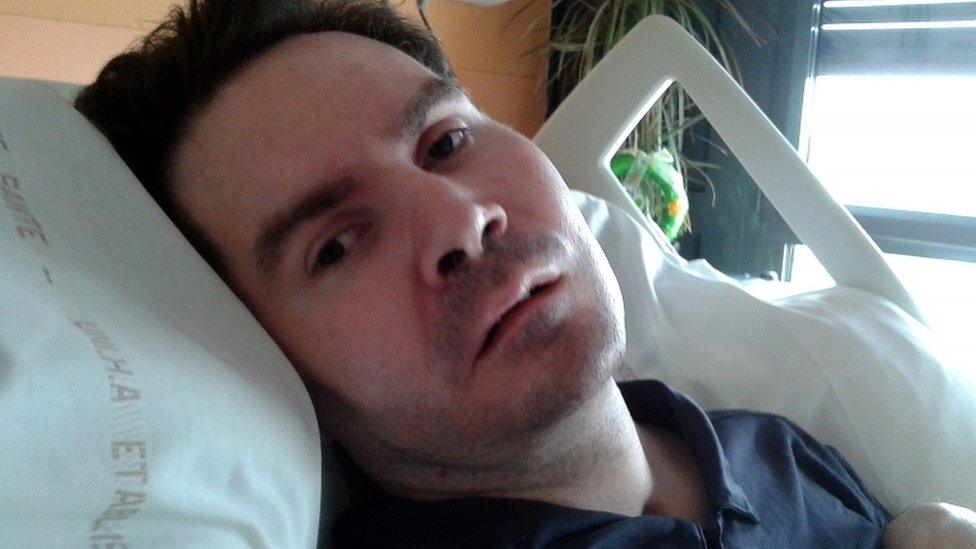
- Published20 May 2019
